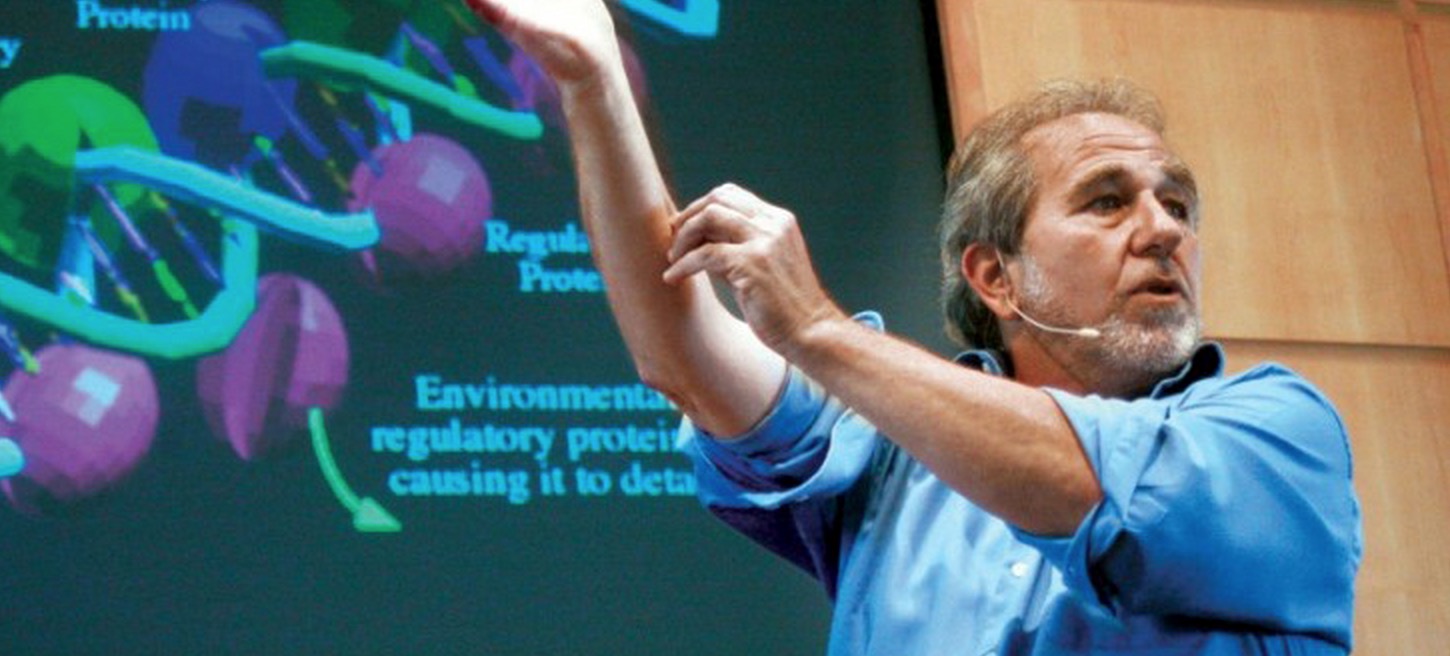Consciousness
Your Genes Don’t Tell the Whole Story, And There’s A Fascinating Reason Why That Is (Mind-Altering)

We’ve all heard the expression, ‘they were just born that way,’ and while our genes are our genes, there is much we can do to change them, contrary to long-standing beliefs in medical and scientific circles to the contrary. Through ‘gene expression’ a whole new world is available to us, and it all happens through the choices we make.
Not all of our genes are active all the time, and scientists have only recently admitted that behind the deterministic view that our genetic code is ‘locked’ once we get it from our parents, we’ve learned that epigenetics and gene expression affect genes at a profound level. In fact, the human genetic code has layers of information, which only gets turned on when certain environmental cues occur.
When the genetic code was deciphered in the 1960s scientists incorrectly assumed that all it did was encode proteins. Only recently did scientists figure out that genomes use our genetic code to write in two different languages – one hidden on top of the other, quite literally.
“For over 40 years we have assumed that DNA changes affecting the genetic code solely impact how proteins are made,” said Dr. John Stamatoyannopoulos, the primary researcher for the discovery made by scientists at the University of Washington.
“Now we know that this basic assumption about reading the human genome missed half of the picture. These new findings highlight that DNA is an incredibly powerful information storage device, which nature has fully exploited in unexpected ways.”
What all this means is that you can inherit traits by other means than just the basic code of a sequence of genes given to you by your parents or grandparents. Chemical tags in the chromosomes of genes can get turned ‘on’ and ‘off’ when you are around happy people, you eat really healthy food, or you exercise every day.
Scientists stumbled on this fact when they were observing a certain strain of roundworms that seemed to be able to live 30% longer than its normal 2 to 3 week lifespan. There was no genetic trait that would obviously cause this, but even in roundworms that did not inherit the mutated strain of genes for ‘long-life’ from their parents, they could still live a long time.
Through studying phenotypes, scientists learned that even without changes to the DNA sequence, certain genes were told to stay on, such as to live longer, in the case of the roundworms, with the secondary language hiding ‘on top of’ the regular genetic code.
This means that you can instigate two chemical tags which are considered to be the backbone of DNA, methyl and acetyl groups, which can tell genes to turn on or off in different combinations to be healthier or live longer.
In the case of the roundworms, they ‘learned’ from their parents that they could live 30% longer, and even though they didn’t have the actual DNA sequence to support that life-extension in themselves, they could still carry it out.
In another study published in the Nutrition Journal, they explain that:
“Depending on the things you do, genes will activate or deactivate to compensate. Exercise, for example, will activate genes that are necessary for developing strength, size, or endurance.”
The means to arrive at this conclusion was found by comparing two diets in the study. One, the researchers called the “Prudent” dietary pattern and the other called the “Western” dietary pattern. The diets were characterized by high intakes of fruits, vegetables, and whole grains for the former, and high intakes of refined grains, sugars, and processed meats for the latter.
Depending on what people ate, the researchers discovered enormous difference in gene expression. Over 2,000 transcripts that determine gene expression were different in men who scored at each end of the Prudent pattern, and over 1,000 were different in women. For the Western pattern, the differences between men and women were smaller, and women actually had a bigger difference in gene expression, with over 1,100 different transcripts compared to just over 1,000 for men.
If you think of the ramifications, which have already been alluded to by biologists like Bruce Lipton, the whole world is your oyster – you aren’t relegated to certain diseases or life outcomes based solely on your DNA. You can ‘teach’ your genes how to live better and longer. It doesn’t matter what you inherited from your parents, although if they made good life choices, they could definitely influence your genes to the positive side. Ultimately, though, gene expression is affected profoundly by choices you make every day.
When Lipton was asked to explain his own epigenetic experiments with cell cultures he said:
“This echoes, from a highly scientific point of view, what the intuitive and spiritual healers have been advocating for years: your mind can and does contribute to both the cause and healing of whatever ails you—including cancer.”
In the video below, Bruce Lipton, a cellular biologist, and the author of “The Biology Of Belief” and “Spontaneous Evolution” talks about his life, his work, and how he sees the predicament of the human race.
Sources:
http://truththeory.com/2014/11/01/beyond-deterministic-genes-the-morphogenetic-field/
https://www.brucelipton.com/resource/article/epigenetics
http://breakingmuscle.com/nutrition/your-diet-can-change-your-genes
http://med.stanford.edu/news/all-news/2010/06/study-identifies-proteins-that-extend-life-span-in-worms.html
Typos, corrections and/or news tips? Email us at Contact@TheMindUnleashed.com
